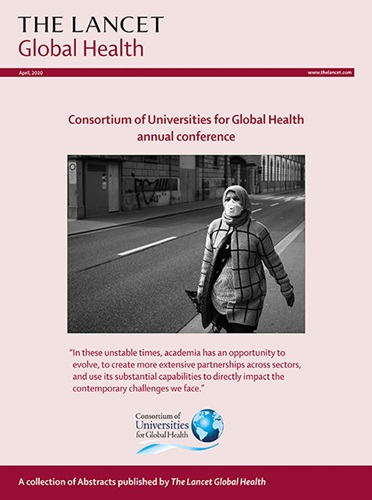Improving Ebola virus disease outbreak control through targeted post-exposure prophylaxis.
IF 19.9
1区 医学
Q1 PUBLIC, ENVIRONMENTAL & OCCUPATIONAL HEALTH
引用次数: 0
Abstract
Ebola virus disease kills more than half of people infected. Since the disease is transmitted via close human contact, identifying individuals at the highest risk of developing the disease is possible on the basis of the type of contact (correlated with viral exposure). Different candidates for post-exposure prophylaxis (PEP; ie, vaccines, antivirals, and monoclonal antibodies) each have their specific benefits and limitations, which we discuss in this Viewpoint. Approved monoclonal antibodies have been found to reduce mortality in people with Ebola virus disease. As monoclonal antibodies act swiftly by directly targeting the virus, they are promising candidates for targeted PEP in contacts at high risk of developing disease. This intervention could save lives, halt viral transmission, and, ultimately, help curtail outbreak propagation. We explore how a strategic integration of monoclonal antibodies and vaccines as PEP could provide both immediate and long-term protection against Ebola virus disease, highlighting ongoing clinical research that aims to refine this approach, and discuss the transformative potential of a successful PEP strategy to help control viral haemorrhagic fever outbreaks.通过有针对性的接触后预防措施改进埃博拉病毒疾病的爆发控制。
埃博拉病毒感染者中有一半以上会死亡。由于该疾病是通过人类密切接触传播的,因此可以根据接触类型(与病毒暴露相关)来确定罹患该疾病风险最高的个人。暴露后预防(PEP,即疫苗、抗病毒药物和单克隆抗体)的不同候选药物各有其特定的优点和局限性,我们将在本视点中对此进行讨论。经证实,获批的单克隆抗体可降低埃博拉病毒感染者的死亡率。由于单克隆抗体直接针对病毒迅速起效,因此很有希望用于对高危接触者进行有针对性的预防性治疗。这种干预措施可以挽救生命,阻止病毒传播,最终帮助遏制疫情蔓延。我们探讨了将单克隆抗体和疫苗战略性地整合在一起作为预防性治疗如何能够提供针对埃博拉病毒疾病的直接和长期保护,重点介绍了旨在完善这种方法的正在进行的临床研究,并讨论了成功的预防性治疗策略在帮助控制病毒性出血热疫情方面的变革潜力。
本文章由计算机程序翻译,如有差异,请以英文原文为准。
求助全文
约1分钟内获得全文
求助全文
来源期刊

Lancet Global Health
PUBLIC, ENVIRONMENTAL & OCCUPATIONAL HEALTH-
CiteScore
44.10
自引率
1.20%
发文量
763
审稿时长
10 weeks
期刊介绍:
The Lancet Global Health is an online publication that releases monthly open access (subscription-free) issues.Each issue includes original research, commentary, and correspondence.In addition to this, the publication also provides regular blog posts.
The main focus of The Lancet Global Health is on disadvantaged populations, which can include both entire economic regions and marginalized groups within prosperous nations.The publication prefers to cover topics related to reproductive, maternal, neonatal, child, and adolescent health; infectious diseases (including neglected tropical diseases); non-communicable diseases; mental health; the global health workforce; health systems; surgery; and health policy.
 求助内容:
求助内容: 应助结果提醒方式:
应助结果提醒方式:


